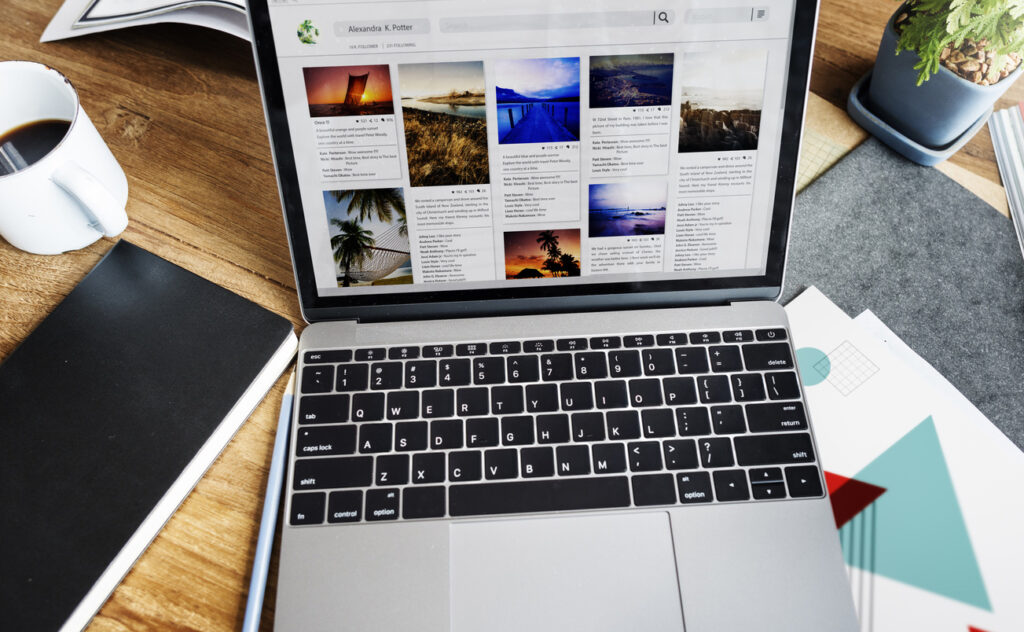13 words or phrases to ban from your website
Be specific with button labels. Instead of ‘Submit’, use action-oriented text like ‘Get started’, ‘Sign up’ or ‘Request quote’.
A short list of words or phrases to ban from your website that should never darken your online doors again…
In its site quality ratings guidelines, Google penalises web pages with spelling and grammar issues. If only it could do the same for cliches, jargon and superfluous writing. So here are some of our suggestions it should add to its algorithm to downgrade pages that commit these kinds of copy sins.
1. Welcome
On a homepage, a Welcome message contains no information and is a massive waste of very valuable screen space. The way to welcome your visitors online is to provide information that shows them exactly what you’re about and how you can help them.
2. Please and thank you
These too are pointless pleasantries on a website. Crisp, clear instructions that tell user where to go on your site and what they’ll find when they get there are the real courtesy online.
3. Click here
Wrong from every point of view. Bad accessibility-wise because it’s meaningless to people using screen readers. Hopeless for scan readers who ‘may’ just be looking at signposting copy such as heads and links. And a wasted SEO opportunity – Google looks hard at anchor texts, and this one contains no keywords.
PS – on a mobile, most people aren’t clicking they’re tapping or selecting…
4. Above, below, left, right
Many websites adapt themselves to the device they are being displayed on, whether a desktop PC, a mobile, or something in between. So if you write that another feature of the page can be seen on the right, it may actually be below on a mobile phone. It’s misleading for users. It can also be unhelpful to users with accessibility needs. Better to say, for example, see Table 1.
5. Retrieve a quote
No one uses this sort of language in the real world and it makes you sound like you are telling a dog to fetch a ball. What’s wrong with something plain like: Return to your quote?
6. Mandatory fields
Robotic data-capture speak. In any other context these would be boxes. And we’d just say you must fill them in. Even better don’t label the mandatory fields, just label the remaining fields ‘optional’. Then it’s really clear.
7. Check this box
In British English at least, people tick boxes or put crosses in them. An easy choice for a phrase to ban from your website.
8. Submit
Nobody wants 50 Shades of Grey to permeate their consciousness even momentarily. Be more specific with your button labels. Instead of ‘Submit’, use action-oriented text like ‘Get started’, ‘Sign up’ or ‘Request quote’.
9. Library / Resources
This tends to refer to the area of the site that should be really called: “dumping ground for pdfs and other bumpf we couldn’t think where else to put but were told had to go up somewhere”.
10. Other…
When used in headings and tabs, as in ‘Other news’, ‘Our other products’ etc. Other to what? These labels are unscannable because the information they convey is not self-contained – they rely on the user looking at something else to make complete sense of them. Which doesn’t work well online, where you cannot fully control the context in which people see your content or even the way it’s presented.
11. Unique, authentic
Meaningless marketing hype. What sells online is real, specific information. Telling me your product or service is unique tells me nothing. Avoid other superlatives and filler phrases like market-leading, world class and cutting edge – particularly if your business isn’t. Use better and more original descriptors that more accurately reflect your business unless you can prove your claim.
12. Features
Some websites still arrange their content into editorial buckets like ‘features’, ‘news’, ‘events’. Fine for organising your content internally but don’t let these labels make it on to the site, where they’ll mean nothing to your readers.
13. Solutions
An SEO specialist recently told us that if he could ban one word from websites, this would be it. Everything is described as a solution nowadays, from sandwich bars to industrial cranes: Private Eye even has a column where people send in their favourite dire examples. But only businesses call their products and services “solutions” – their customers never do, which is bad news from both an SEO and plain language/usability point of view.
Let us help
If you need help with creating cliché-free user-friendly copy we’ve got years of experience of writing helpful, clear digital content. Just get in touch and tell us what you need.

Bridie Pritchard
Senior Editor and Content Strategist



